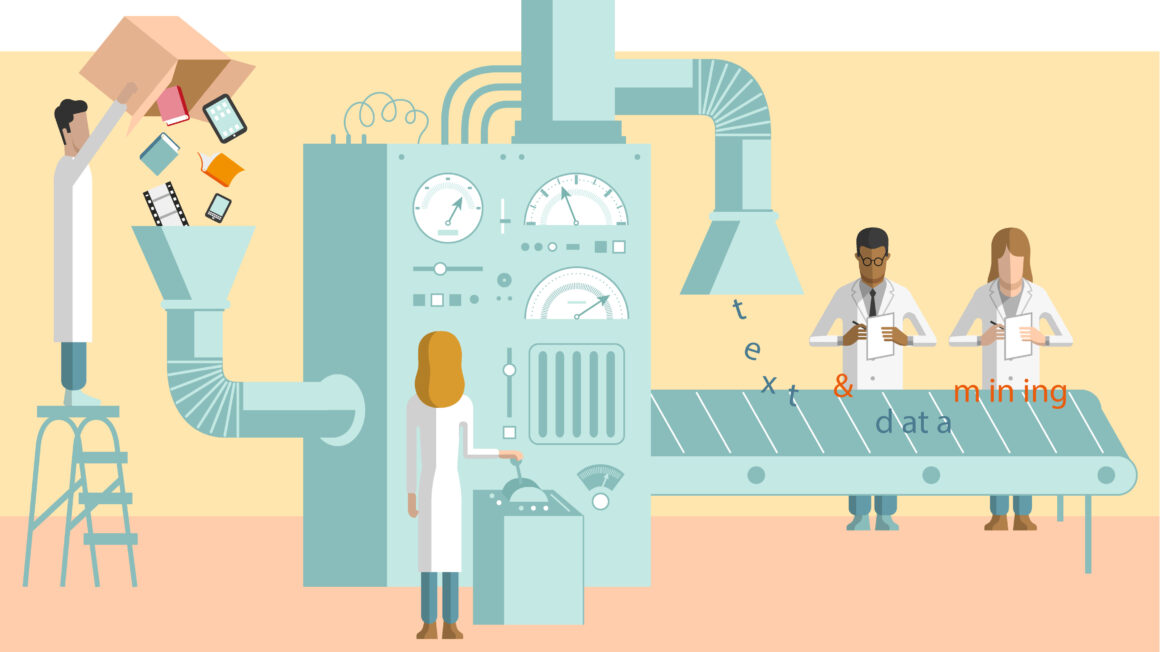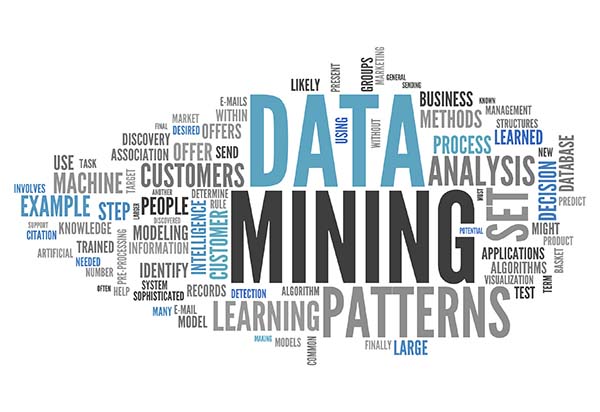How much information do companies need to get to know you?
It’s too easy to become extremely paranoid in this day and age when technology has grown in leaps and bounds with each passing year. But data mining, and figuring out how far it can go or should go, is another reason why a lot of people are looking at each other askance. What is data mining? Quite simply, it’s the process by which our spending habits and preferences are discovered and banked on by businesses that are seeking to predict and, like it or not, influence future trends. At the most basic level, it’s about discovering what people like and determining how to use that information to keep their interest in the months and years to come. That’s oversimplifying the matter, but it’s also a very true deduction since learning the preferences of the masses is how businesses remain successful and find the necessary components that help them to stay at the top of their respective industries. In other words, as we grow and consume more and more products, companies utilize several methods to learn how to best please the populace and, in some cases, influence our future decisions.
Feeling paranoid yet?
Everything we do leaves an imprint for companies to view

Every time you get online and purchase something, or look at something, and every time you make a purchase out in the real world, you’re leaving an imprint. The fact of the matter is that anything you do, say, or even view might be used as a way to mine your personal data and therefore understand how you stack up along with several others when it comes to various trends. Businesses use this to determine what you use most often, how they can improve it, and how they can alter it in the future to make certain that you’ll keep buying or viewing those products and services. In theory, it’s not such a bad thing since it allows them to serve their own needs by finding ways to remain relevant and make money, and better serve the populace by keeping them entertained, satisfied, and cared for. But as one can imagine, there are certain ways that this can be abused.
Sadly, data mining isn’t as illegal as people might want it to be

There are methods by which data can be mined and types of data that aren’t problematic in the least. But when it comes to personal data and anything that might be considered sensitive, there are legal ways to go about it, but a lot of people are still of the mind that it shouldn’t be allowed. It does feel like a huge invasion of privacy since a lot of people don’t want others to know what their preferences are, what they’re into, and what sites they visit. Of course, if a person didn’t want anyone to know that then it’s fair to say that they shouldn’t broadcast it, and should take the effort to secure their data. Otherwise, once one hits the internet, they’re fair game.
Back in the day, people discovered your preferences the honest way, by getting to know people

In all honesty, there was a time when people were known to certain businesses since they frequented them quite often. The effort to make things personal and cater to those who had a definite preference for one thing or another was far less invasive and didn’t rely so much on what could be found while digging into a person’s life. As of now though, technology has made it possible to figure out what a person likes and what they’re most likely to buy thanks to what they do online and in the real world. Every bit of data that a company can gather is used to predict trends and thereby create a personal touch for people who are willing to go along with the trend.
Think about where all that data is kept

Another fact to think about is that companies aren’t just using that data and then releasing it. That wouldn’t make much sense from a business standpoint, would it? But keeping that information and making it work for them as they continue to predict what will work in the coming years sounds like a rational plan, but also something that could lend itself to certain abuses. The idea of having your personal information in the hands of those who know how to access it and use it in a number of ways is enough to scare the hell out of a lot of people. But one has to imagine that there are also enough decent people working these angles to believe that this information will remain confidential. It’s a small ray of hope in the otherwise paranoid thoughts that arise without fail.
Data miners have a lot of tricks up their sleeves

How data miners get your information isn’t as cut and dried as a person might think. There isn’t one method that works best for everyone. Considering how many different businesses are out there, it stands to reason that those that are seeking to watch and predict trends would find one way, then another way, and then another way, and so on and so forth. It’s not tough at all to think that data miners are going to get tricky on occasion in order to get what they want. The legality of it is something that’s tough to explain at times since the different methods don’t always conform to the laws that have been set into place when it comes to obtaining and sharing data that can predict what society will lean toward or away from. The long and short of it is this: data miners know how to mask their activities from all but the strictest of law enforcement agents, and even then, a lot tend to slip through the cracks. The most legit businesses tend to get overlooked unless they slip up and do something truly stupid with the data they’ve mined.
Who has the ultimate control of all this data?

This is one of the ideas that is bound to make people super paranoid, since imagining who handles all the data that’s being gathered each day is a little nerve-wracking. Think about it, there are those out there who have your personal data and are using it for their own ends. A calming thought is that they’re simply trying to figure out how to best serve the public and fill a need. To keep people happy and keep them coming back for their service or goods, it’s only natural that they would find a way to personalize their services to make certain that people don’t look elsewhere. The thought that someone is looking for ways to keep people interested isn’t too bad, but there are still plenty of people who are willing to argue that not everyone involved in data mining is trustworthy.
Do your homework, understand where your data is going

The point of data mining is rather benign, but wondering how far it goes and what is really being done with your information is enough to make a lot of people worry about what they reveal online. Companies that want to know how to best please the population will conduct their searches in ways that are responsible and respectful of the privacy of their intended audience. But one has to know that at some point, there are those who are going to cross the line. What the average citizen needs to do is be aware of who they’re giving their information to, what’s going to be done with it, and whether it’s worth interacting with certain companies if one really worries about the security of their personal information. Seriously, do your homework.
WTR? (Why’s That Radass?)
The truth about data mining is that it’s not an evil, illegal practice when it’s done with the goal of improving a service or the quality of goods that are sold to the public. But those that decide to get greedy and push the matter a little too far have made it possible for paranoia to set in. It’s important these days to be aware of who is collecting your personal data, so be aware.








